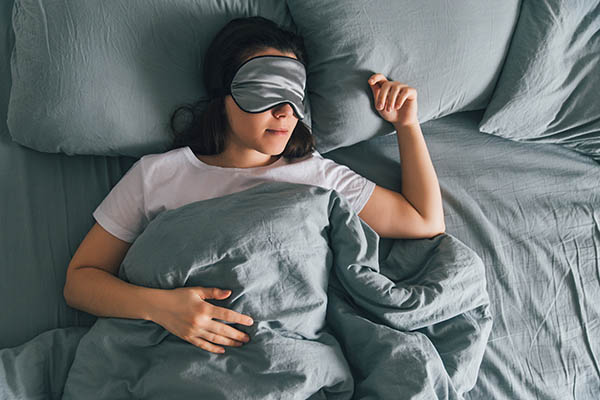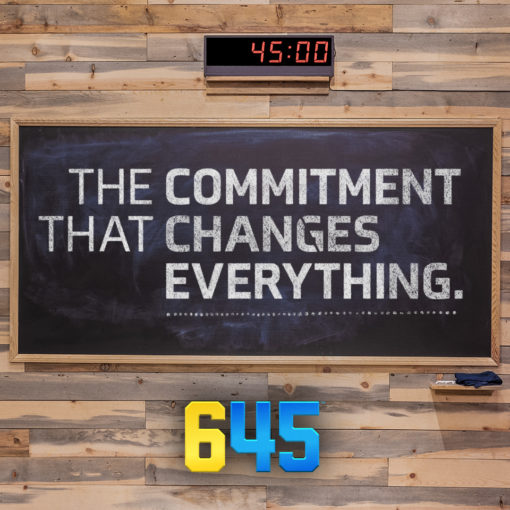Sleep just might be the missing piece for better performance not just with your fitness program but in other aspects of your life.
Want to know a great way to catch an awesome buzz? Sleep.
Think about it: Sleep is free safe, and even a little trippy. And after seven or eight hours of it, you feel amazing.
According to sleephealth.org, sleep deprivation is a “national epidemic,” affecting 25% of adults. You might well be one of them.
Never considered the fitness-building effects of regular visits to the Land of Nod?
Here’s how sleep helps you build muscle, torch fat, and stay healthy — along with a few smart ways to get more of it into your life.

Why Sleep?
Some hard-chargers pride themselves on how little sleep they get, believing that they can make it through a busy day on coffee and power naps.
Big mistake.
Lack of sleep might be bad for you
No matter what the gurus say, you can’t “hack” sleep.
Failing to get the requisite 7-8 hours is associated with all kinds of metabolic, cardiovascular, and psychological problems, including:
- Insulin resistance: The inability of your cells to respond to the hormone insulin and therefore inhibit the uptake and utilization of blood sugar for energy.
- Appetite dysregulation: An abnormality in the metabolic, physiological, or psychological processes that can lead to hunger pangs, cravings for sweets, inability to focus and concentrate, lousy judgment, and poor impulse control.
Lack of sleep hurts you at work
A 2017 study estimated the economic cost of sleep deprivation — in lost work, reduced productivity, and workplace accidents — at between $280 and $411 billion in the U.S. alone.
That’s a hefty bill for a few nights of burning the midnight oil.
Lack of sleep hinders your fitness goals
Poor sleep inhibits fitness gains by interfering with the secretion of HGH (human growth hormone), testosterone production, and protein synthesis, which aid in muscle and tissue repair, fat and sugar metabolism, and body composition.
People who sleep poorly are also more likely to experience anxiety, anger, fatigue, and lack of vigor than those who don’t; they also get sick more often.
In short, regular, nourishing sleep is essential to some of the most essential components of fitness:
- building muscle
- burning fat
- learning new skills
So even if you scarf vitamins, live on superfoods, or down coffee laced with mammoth bile, you won’t grow muscle, maintain productivity, or stay healthy without 7-8 hours of z’s each night. It’s a fact of life.
Tips for the Z-Deprived
One of the more unhelpful pieces of fitness advice you can get is “sleep more.”
When you’re stressed, your mind races at night, making drifting off harder. So here are some strategies to make it easier.
1. Get outside early
Over hundreds of thousands of years, humans evolved to sleep when it’s dark and move around when it’s light.
That hasn’t changed in the blink-of-an-evolutionary-eye that’s elapsed since the invention of indoor lighting.
So when we expose our eyes to artificial light, especially after sundown, our internal clocks become confused, throwing off the wake-sleep cycle that’s been with us since our hunting-and-gathering days.
One easy solution: take an early morning walk.
Exposing your eyeballs to those natural rays sends your brain a “time to get up” signal and presses the “start” button on your internal clock.
Later in the day, when it’s time to wind down, your brain will start to send you signals that it’s time to hit the sheets.
No need for a long walk, though you can certainly combine your morning light-exposure with an outdoor workout if you’re so inclined.
Ten to 20 minutes should do it, and even five minutes can help.
2. Cut down on blue light
In an ideal world, no one would look at a screen device past about 6pm.
The constant scrolling, the endless news feeds, the texts and emails from bosses and co-workers can all jack your stress hormones through the roof.
Compounding the problem is the fact that screens emit blue light, a wavelength that signals your brain that it’s time to get up and at ’em right when you’re trying to wind down.
We know you’re unlikely to curb nighttime Netflixing. So when you’re taking in video entertainment in the evening, use a blue light filter.
Most laptops and phones have a setting for this (check your System Preferences for a “Night Shift” feature).
Failing that, pick up a pair of blue-light glasses, which have been shown to increase the secretion of sleep-inducing melatonin by nearly 60%.
3. Prioritize
If it never feels like there are enough hours in the day, limit your use of time-wasting electronics during the day (those pesky things again—notice a pattern here?).
“Whether it’s your cellphone going off every five minutes, or scrolling through Instagram and TikTok, or keeping a TV on in the background, or getting dinged with emails, electronics are a major time-sucker,” says Amanda Lopez, CPT and technical fitness advisor for Beachbody.
“The biggest tip to being productive and getting enough sleep is to turn off electronics,” she says.
Stick to a strict daily limit, or reduce your access to certain hours during the day.
Your productivity will jump, allowing you to finish the day’s tasks more efficiently — and get more shut-eye as a result.
3. Make a sleep cave
The room where you sleep should be cool, quiet, and pitch-black. Even slivers of light bleeding in through parted curtains can disrupt sleep.
Can’t spring for blackout blinds just yet? A sleep mask can work just as well.
4. Nail your nighttime ritual
Everyone talks about their morning routine (Up at 6! Gym by 6:30! Smoothie at 8!). But it’s what you do the night before that sets it all up.
If your nighttime routine is poor, there’s no way you’ll own the morning.
Nighttime should be all about disconnecting from the worries of the day and winding down. Some good strategies:
- If you’re the stressed-out type, write down your to-do list for the following day in the early evening, before you unplug
- Practice some deep breathing exercises
- Do some foam rolling or light stretching
- Meditate
You’ll manage your cortisol and tip your nervous system towards the restful parasympathetic state, laying the groundwork for a deep and blissful night of Zs.
Need help on that front?
Beachbody’s 9 Week Control Freak program includes 5-10 minutes of controlled stretching for every workout day.
You’ll perform these stretches just before bed to ease muscle tension and enhance your body’s natural repair and recovery processes to optimize your results — so you’re ready to perform at your best in your next workout.



